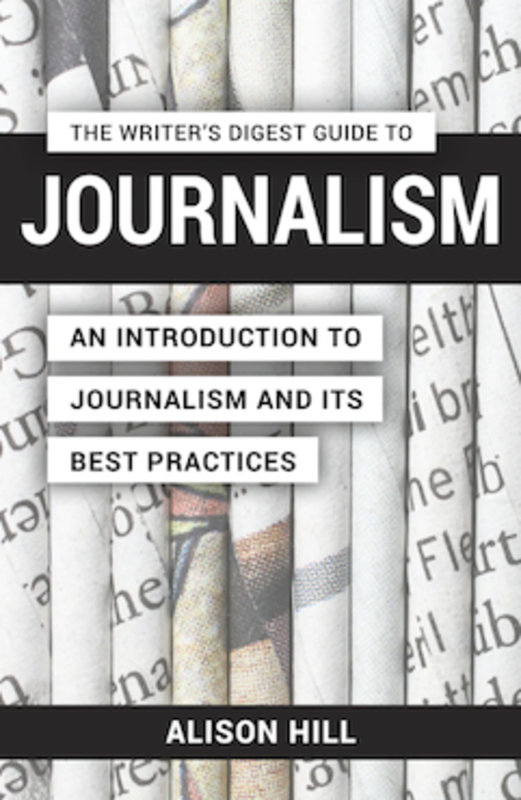Journalism is often described as “storytelling with a purpose” and its purpose according to the American Press Institute is, “to provide citizens with the information they need to make the best possible decisions about their lives, their communities, their societies, and their governments.”
(5 Great Journalism Podcasts for Writers to Try.)
The fundamental purpose of journalism today remains the same. However, technological advances and digitization have drastically changed the way news is created, disseminated, and consumed. These changes, as well as other factors, have transformed the landscape and industry to such an extent, that it’s getting increasingly difficult to find trusted sources. It’s hard to determine any more if the public is receiving the information needed to become fully informed citizens, and there are many reasons for this. There’s a lot to discuss, so let’s dive in.
Journalism is referred to as the ‘fourth pillar of democracy’ and journalists are supposed to be society’s watchdogs. They’re hired on the public’s behalf, tasked with digging out the truth, asking tough questions, challenging the powerful, and holding those in government, business, and institutions accountable regardless of political affiliation. The journalist’s role is finding and presenting this vital information in an objective, neutral manner.

In general, these basic journalistic standards are not being met. Mainstream outlets are supposedly regulated by media law and press ethics, yet the problems within the industry are now glaringly obvious even to the casual observer. The legacy media is losing public trust and respect at an alarming rate as a huge number of Americans now find the news unreliable and untrustworthy.
A 2023 Gallup poll shows that overall trust in journalism is at an all-time low. Gallup began tracking trust in American mass media back in 1972, when 68% claimed they had “a great deal” or “a fair amount” of trust in the media, and “none at all” was at a mere 6%. In 2023, only 32% of Americans reported they had “a great deal” of trust in the news media, and “none at all” hit a record high of 39%.
And as for political coverage, according to a May 2024 report from the American Press Institute and The Associated Press-NORC Center for Public Affairs Research, 53% of Americans say they are extremely or very concerned that news organizations will report inaccuracies or misinformation during the election season. Almost half (47%) worry that news outlets will report unverified information, and 48% are concerned that the media focuses too much on divisions or controversies.
They were once highly regarded as the bastions of reliable news but now people are switching off the mainstream media and seeking alternatives. And there’s plenty to choose from online, including social media sites like Facebook and X (formerly Twitter), independent networks, and YouTube channels.
*****


The Writer’s Digest Guide to Journalism is a practical, informative, and well-researched introduction to journalism and its best practices, with actionable advice, tips, techniques, explanations, and anecdotes straight from the field. In this digital guide, writers will learn how to write an effective news piece, skills need to be an effective journalist, outlets for publishing journalism, journalism associations, and so much more. Both inspirational and pragmatic, The Writer’s Digest Guide to Journalism is packed with valuable resources for aspiring journalists.
Click to continue.
*****
The news industry itself shares some of the blame, due to the rise of infotainment, homogenous, sensationalist journalism, and the consolidation of news outlets. Digitalization is also a factor, and many traditional outlets just couldn’t compete, and in the past few decades TV news stations have faced massive layoffs and thousands of newspapers nationwide (especially local newspapers) have closed their doors for good.
Many fear that the remaining ‘watchdogs of democracy’ are fast becoming either the ‘mouthpieces of government’ or the lapdogs of corporations.
But what does the ‘alternative news’ media offer? Is it any better?
Amidst the deluge of online content, it’s often hard to distinguish between real news, propaganda, click bait, and AI-generated material. In addition, digitization has created a new wave of journalism and a new kind of journalist. Some independent and citizen journalists routinely and easily outperform their legacy media counterparts in terms of audience numbers and impact. Journalism is being redefined and the title ‘journalist’ is becoming more fluid.
But the internet is congested with content, much of it poorly written, badly researched, and lacking substance. Journalistic integrity has been shoved aside with speed and quantity taking priority. The goal is to churn out as much stuff as possible, in multimedia, easily digestible formats, so consumers can gorge at the endless information feedlot. There’s an abundance of activist journalists and commentators in both legacy and independent news media. They probably far outnumber ‘real’ journalists. On a national level, the partisan bias is not just seeping through but flooding out the pores of some journalists.
Not only are we constantly bombarded with information, but much of it is also irrelevant and designed to provoke an emotional reaction rather than inform us. When we react in such a manner, we’re not digesting information that will serve us, but instead becoming embroiled in a divisive war of words, ideals, and culture. We respond to headlines that often have little to do with the actual story, and we forget the things that matter in our everyday life and local communities. The purpose of some of this content is to provoke a reaction, cause conflict, divide, and create tension.
The bottom line is that negative stories attract attention and make money. This is not a new concept, of course, we’re all familiar with the saying, ‘if it bleeds, it leads.’ Mistrust in the news media is also nothing new and the industry has always been in a state of flux. The big difference now is the sheer volume of content and information we face daily, from all types of sources and in various formats. It’s unprecedented.
For journalism in general to regain the public’s faith and trust, the industry must first avoid employing activist journalists. Reporting is quite simple. Shelve the thesaurus, tell us what’s happening in simple terms, cut out the metaphors, hold the snark, and cover both sides of a story. In addition, the media should not be sheltering candidates or lobbing tough questions at one side while treating the other with kid gloves.
A journalist’s job is to report what’s going on, period. They’re not hired to lecture the public, be dismissive and patronizing towards half the population, or to abuse their privileged positions by churning out endless hit pieces.
People are not oblivious and truly crave substance and quality, the basic stuff that even the most mediocre journalists used to offer as a matter of course. While national journalism seems mired in these problems, the saving grace I do believe is local journalism.


The public continues to rely on certain services, such as local news resources, be it television, radio, or local news websites, for their state and community news, weather, traffic, and coverage of local political candidates. Several polls support this notion. A 2024 study by the PEW Research Center reveals that American still hold positive views of local news media. Most U.S. adults (85%) believe local news outlets are at least somewhat important to the well-being of their local community, and 44% of those questioned say they are extremely or very important.
There are efforts underway to continue the work of now defunct newspapers online and the results look very promising.
Again, the basic purpose of journalism is to provide the public with pertinent and accurate reports so that we can all make informed decisions on issues that directly affect us.
If we can wade through the heaps of online trash and sieve out the nonsense, it’s possible to find many journalistic gems. Who knows if the traditional media outlets will survive the digital revolution. But there are journalists both traditional and independent, that truly care about journalistic integrity and will continue to provide quality journalism in whatever format that works. After all, it’s not the delivery method or the platform that’s important, but the quality and accuracy of the content.
________________________




